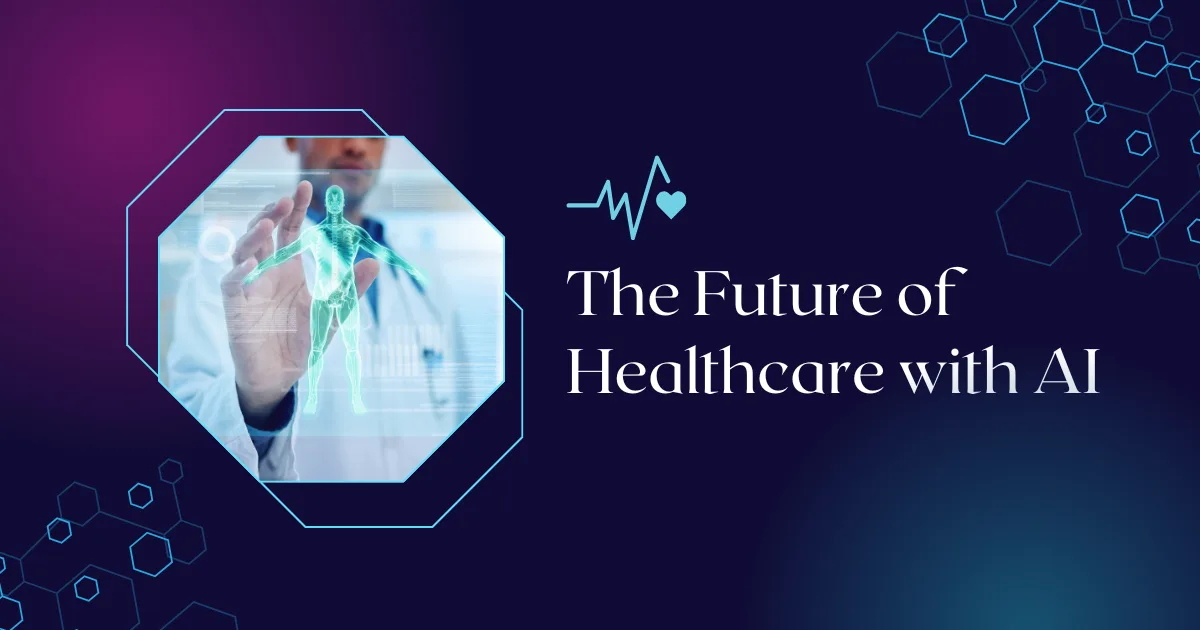Artificial Intelligence (AI) is revolutionizing the healthcare industry, introducing new capabilities that enhance efficiency, precision, and patient outcomes. From medical imaging to drug discovery, AI-driven innovations are redefining traditional approaches to treatment and diagnosis. The intersection of AI with bioinformatics, epigenetics, and personalized medicine has introduced new opportunities for early disease detection, predictive analytics, and tailored treatments. With rapid advancements, AI’s role in healthcare is expanding at an unprecedented rate, promising to reshape the medical landscape in ways previously thought impossible.
AI in Medical Imaging: Precision and Early Detection
One of the most transformative applications of AI in healthcare is in medical imaging. AI-powered algorithms are capable of analyzing radiological images with exceptional accuracy, often surpassing human radiologists in detecting abnormalities. Machine learning models are trained on vast datasets of X-rays, MRIs, CT scans, and ultrasound images, allowing AI to identify subtle patterns indicative of diseases such as cancer, stroke, and neurological disorders.
For instance, in the UK, the National Health Service (NHS) has deployed AI in breast cancer screening programs, reducing the workload of radiologists while improving diagnostic accuracy. AI models can compare thousands of mammograms in seconds, detecting early-stage tumors that might be overlooked by human eyes. This technology is particularly crucial in mitigating radiologist shortages, ensuring that patients receive timely and accurate diagnoses.
A similar approach has been adopted in ophthalmology, where AI assists in diagnosing diabetic retinopathy by analyzing retinal scans. Google’s DeepMind, in collaboration with Moorfields Eye Hospital, developed an AI system that identifies more than 50 eye diseases with accuracy comparable to leading specialists. The ability to detect diseases early means patients can receive timely interventions, preventing severe complications and vision loss.
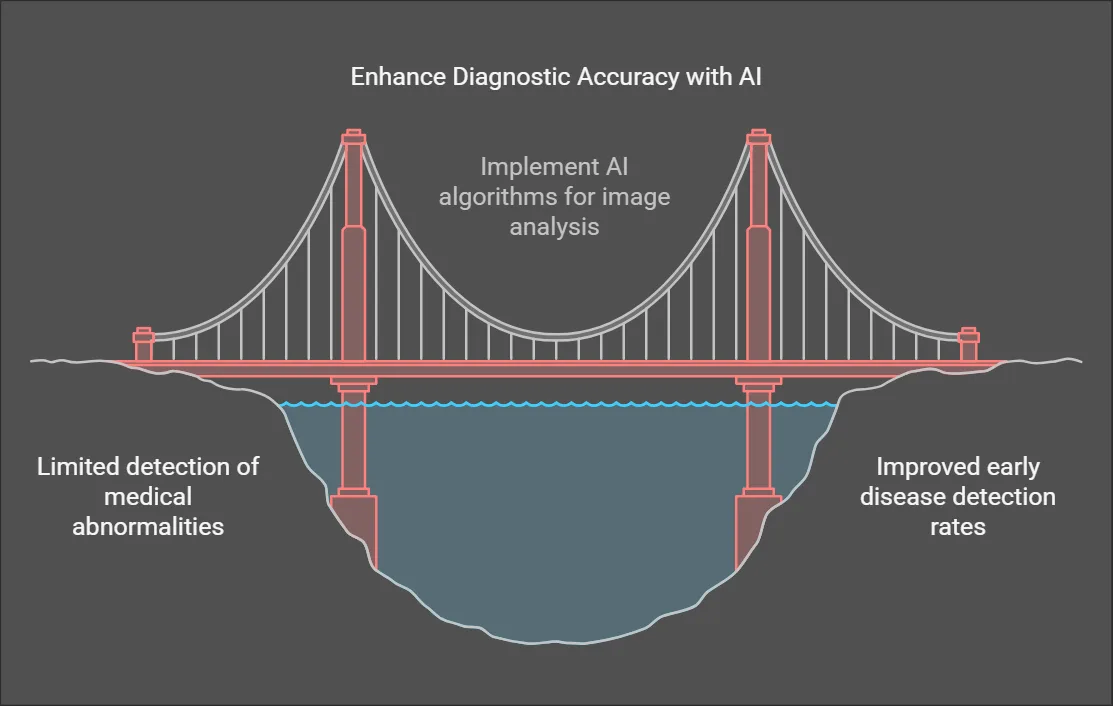
AI in Drug Discovery and Development
The traditional drug discovery process is time-consuming and costly, often taking more than a decade and billions of dollars to bring a new drug to market. AI is accelerating this process by predicting molecular interactions, identifying potential drug candidates, and optimizing clinical trials.
AI-driven platforms such as Atomwise and BenevolentAI analyze vast biomedical datasets, including genetic sequences, chemical structures, and clinical trial results, to identify promising drug candidates in record time. For example, during the COVID-19 pandemic, AI models were used to repurpose existing drugs like Remdesivir to combat the virus, significantly reducing the time required for drug approval.
Furthermore, AI is enhancing personalized medicine by identifying biomarkers that predict patient responses to specific treatments. Machine learning models analyze patient data to determine the most effective drug combinations for conditions such as cancer, neurodegenerative diseases, and rare genetic disorders. By tailoring treatments to an individual’s genetic profile, AI is ushering in a new era of precision medicine, improving both efficacy and patient outcomes.
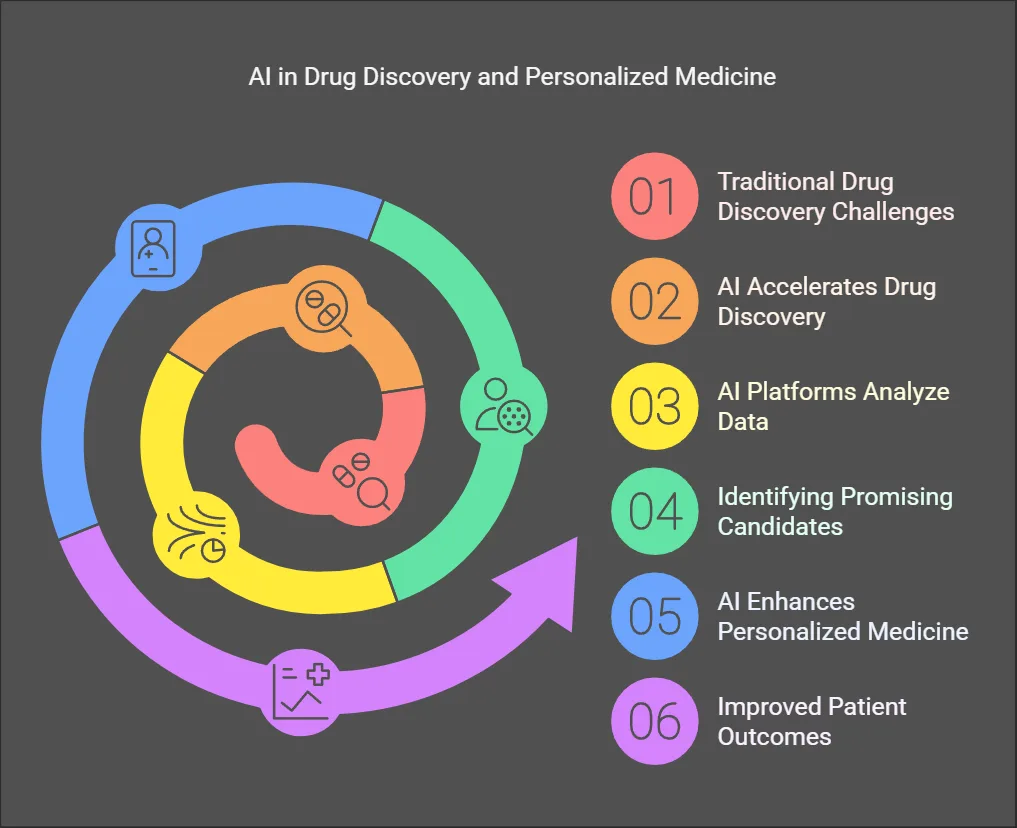
Personalized Medicine and AI’s Role in Tailored Treatments
Personalized medicine, or precision medicine, tailors treatments based on a patient’s genetic makeup, lifestyle, and medical history. AI facilitates this approach by integrating vast amounts of genomic data, electronic health records, and environmental factors to create individualized treatment plans.
One notable example is IBM Watson for Oncology, which analyzes medical literature, clinical trial data, and patient histories to recommend personalized cancer treatments. The system evaluates thousands of research papers in seconds, providing oncologists with data-driven insights to guide therapy decisions. This AI-driven model not only enhances the accuracy of treatment plans but also reduces the time required for decision-making, allowing doctors to focus more on patient care.
Moreover, AI-powered genetic analysis tools are identifying genetic mutations linked to hereditary diseases, enabling early interventions. Companies like 23andMe and Illumina use AI to analyze DNA sequences, predicting an individual’s risk for conditions such as Alzheimer’s, Parkinson’s, and heart disease. With this information, physicians can recommend lifestyle changes, preventive measures, or early treatments tailored to the patient’s genetic predisposition.
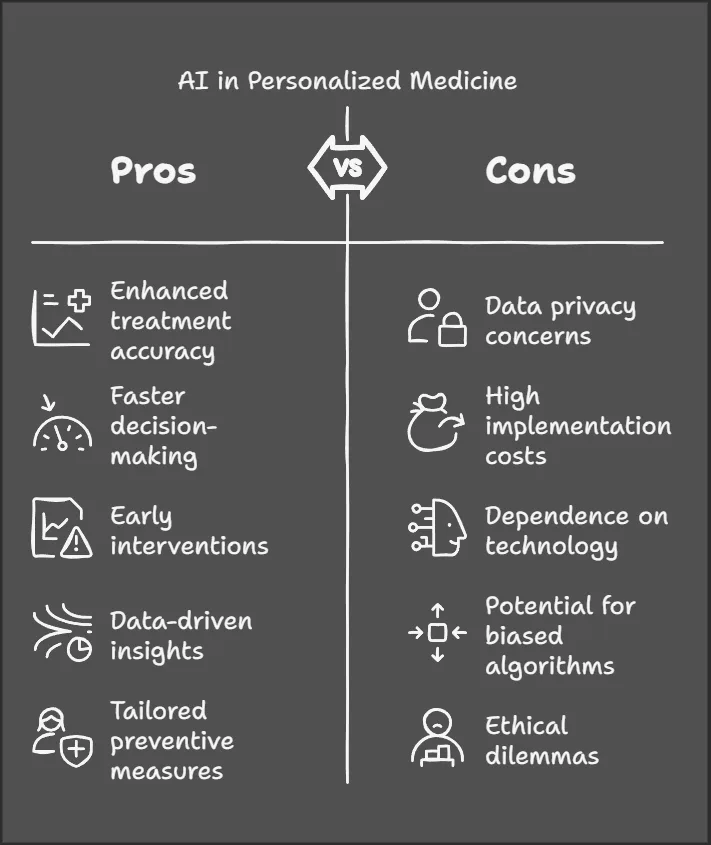
AI in Epigenetics: Understanding the Role of Gene Expression
Epigenetics, the study of changes in gene expression without alterations to the underlying DNA sequence, plays a crucial role in understanding diseases such as cancer, autoimmune disorders, and metabolic conditions. AI is proving invaluable in deciphering complex epigenetic data, uncovering hidden patterns that influence health outcomes.
AI-powered platforms analyze DNA methylation and histone modification patterns to identify epigenetic markers linked to diseases. These insights help researchers develop targeted therapies that modify gene expression to prevent or treat diseases. For example, AI has been used to identify epigenetic changes associated with chemotherapy resistance in cancer patients, allowing oncologists to adjust treatment plans accordingly.
Furthermore, AI-driven epigenetic research is shedding light on the effects of environmental factors such as diet, pollution, and stress on gene expression. This knowledge is crucial in developing personalized health interventions that mitigate disease risks based on an individual’s epigenetic profile.
AI in Predictive Analytics: Forecasting Disease and Patient Outcomes
Predictive analytics is another area where AI is making significant strides in healthcare. By analyzing electronic health records, wearable device data, and population health trends, AI models can predict disease outbreaks, patient deterioration, and hospital readmission risks.
One notable application is AI-driven sepsis detection systems. Sepsis, a life-threatening condition caused by the body’s extreme response to infection, requires rapid intervention to improve survival rates. AI models trained on hospital data can detect early signs of sepsis by analyzing patient vitals, lab results, and medical histories. These models alert healthcare providers to high-risk patients, enabling early intervention and reducing mortality rates.
Similarly, AI is being used to predict cardiovascular events by analyzing heart rate variability, blood pressure, and lifestyle factors. Researchers have developed AI models that assess an individual’s risk of heart attack or stroke years in advance, allowing for proactive preventive measures such as medication adjustments and lifestyle modifications.
Explore the Genomic Data Visualization here
AI in Virtual Health Assistants and Remote Patient Monitoring
The rise of telemedicine and remote patient monitoring has been fueled by AI-powered virtual health assistants. Chatbots and voice recognition systems assist patients in managing chronic conditions, answering medical inquiries, and providing medication reminders.
For example, AI-driven chatbots like Ada and Buoy Health use natural language processing (NLP) to assess patient symptoms and recommend appropriate care. These virtual assistants reduce unnecessary emergency room visits by guiding patients to the most suitable healthcare services based on their symptoms.
Remote patient monitoring systems, equipped with AI, analyze real-time data from wearable devices and smart sensors. Diabetic patients, for instance, use AI-powered glucose monitoring devices that detect fluctuations in blood sugar levels and adjust insulin delivery accordingly. Similarly, AI-based cardiac monitoring systems detect arrhythmias and alert physicians in real-time, preventing serious complications.
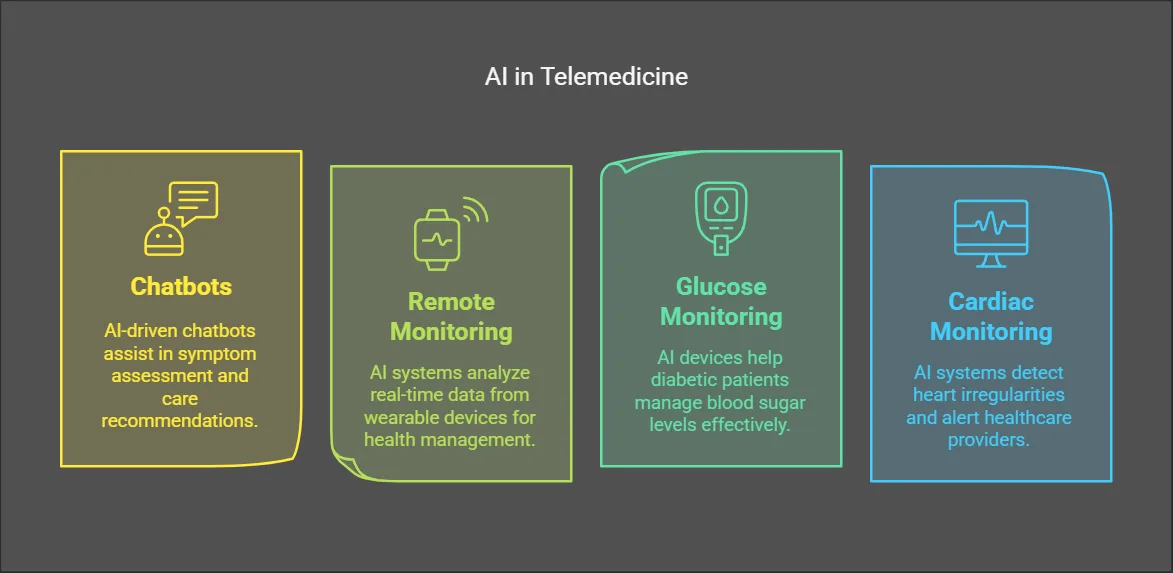
Ethical Considerations and Challenges in AI-Driven Healthcare
Despite its vast potential, AI in healthcare presents ethical and regulatory challenges. Data privacy, algorithmic bias, and the need for transparency are critical concerns that must be addressed to ensure ethical AI deployment.
AI algorithms are trained on large datasets, and any biases present in the data can lead to disparities in diagnosis and treatment recommendations. Ensuring diverse and representative datasets is crucial to prevent AI systems from perpetuating healthcare inequalities.
Additionally, patient data security is a paramount concern. AI-driven healthcare systems rely on sensitive patient information, making them vulnerable to cyber threats. Implementing robust data encryption, secure access controls, and compliance with regulatory frameworks such as HIPAA and GDPR is essential to protect patient privacy.
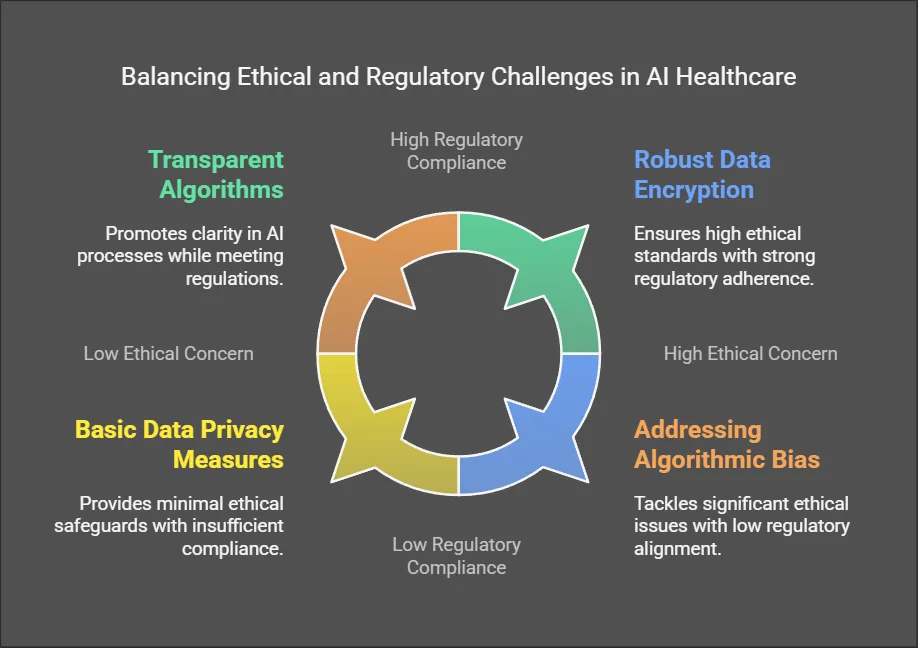
The Future of AI in Healthcare: A New Era of Innovation
The future of AI in healthcare is filled with possibilities, from AI-driven robotic surgeries to autonomous diagnostic systems. Advances in AI-driven genomics, regenerative medicine, and virtual healthcare are poised to redefine medical practice.
As AI continues to evolve, its integration into healthcare must be guided by ethical considerations, regulatory oversight, and a commitment to patient-centered care. With responsible implementation, AI has the potential to enhance global healthcare accessibility, improve patient outcomes, and pave the way for a new era of medical innovation.
In conclusion, AI is not just a technological advancement but a transformative force reshaping the future of healthcare. From early disease detection to personalized treatments, AI is revolutionizing every aspect of medicine, offering hope for more effective, efficient, and equitable healthcare solutions.
How is AI revolutionizing healthcare?
AI is transforming healthcare by improving diagnostics, personalizing treatments, and enhancing patient care. AI-powered medical imaging can detect diseases like cancer earlier than traditional methods, while predictive analytics help forecast outbreaks and patient risks. AI also accelerates drug discovery, reducing the time needed to bring new treatments to market.
What are the benefits of using AI in medical imaging?
AI in medical imaging enhances accuracy and efficiency in diagnosing diseases such as cancer, stroke, and neurological disorders. AI algorithms analyze X-rays, MRIs, and CT scans to identify patterns that might be missed by human radiologists. This leads to faster diagnosis, early detection, and improved patient outcomes, particularly in regions with a shortage of medical professionals.
Can AI improve personalized medicine and treatment plans?
Yes, AI is a key driver of personalized medicine by analyzing a patient’s genetic information, lifestyle, and medical history. AI-powered tools, such as IBM Watson for Oncology, provide customized treatment recommendations based on thousands of research papers and clinical trial data. This ensures that patients receive the most effective and tailored treatments.
What role does AI play in predictive analytics and disease prevention?
AI-powered predictive analytics use vast amounts of patient data to anticipate disease outbreaks, identify at-risk individuals, and recommend preventive measures. AI models help detect early signs of life-threatening conditions like sepsis or heart disease, allowing healthcare providers to intervene before symptoms worsen, ultimately saving lives.
What are the ethical challenges of AI in healthcare?
Despite its benefits, AI in healthcare raises ethical concerns, including data privacy, algorithmic bias, and transparency. AI models must be trained on diverse datasets to ensure fairness in diagnosis and treatment recommendations. Additionally, robust security measures and compliance with regulations like HIPAA and GDPR are essential to protect patient data from cyber threats.
These FAQs will help enhance search engine rankings by directly addressing common and high-value queries related to Healthcare with AI. Let me know if you need further optimization!
